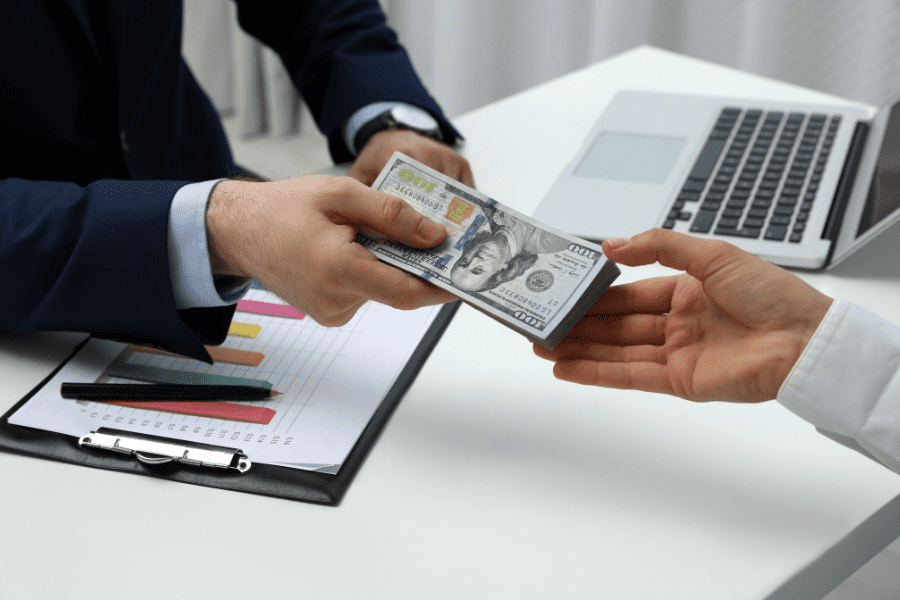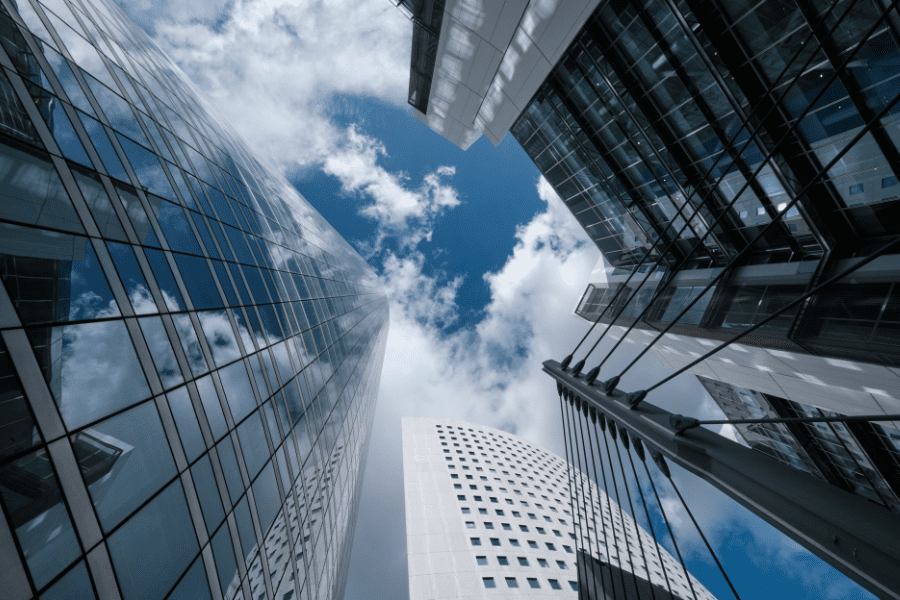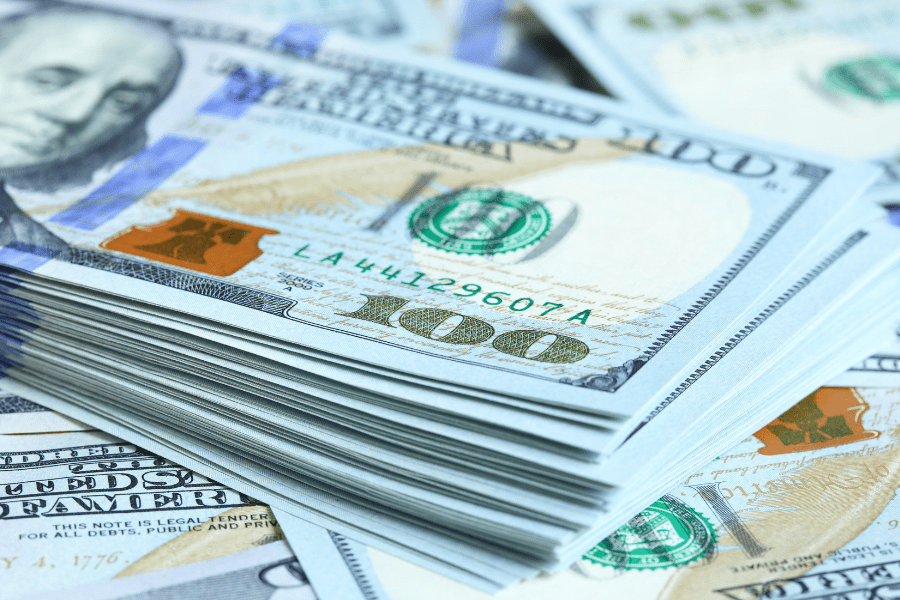Where Do Rich People Keep Their Money?
January 23, 2025
This article answers the question, “Where do rich people keep their money?” It also looks at how they save it, and, most importantly, how they invest it and expand it to create generational wealth.
There are over 56 million millionaires and 2640 billionaires in the world. The US is home to over 21 million millionaires and 735 billionaires, making it the ultimate spot for the wealthy. China, India, Germany, and Russia are some of the other countries with the richest people.
Although the number of millionaires has considerably increased compared to the last century, a million dollars has also lost its prior value. Simply put, a million will not get you remotely as much as it could’ve in the 90s. Still, it’s a lot.
The financial (and personal) habits of high-net-worth individuals have always interested the masses. Many people try to adopt these habits to acquire the same results. For some, it works – for others, it doesn’t.
That’s because you don’t find success by running after a one-size-fits-all solution. You find it by following a holistic strategy that covers all aspects of your life and offers legal tax reduction, a lifestyle boost, and financial freedom – all in one go.
However, you won’t find that strategy in a podcast or a book. You’ll find it by going to the right people, and that’s where we come in.
Nomad Capitalist has the world’s largest database of up-to-date information on tax, residence/citizenship, banking, and corporate structures in over 100 countries. Simply put, we know all the options and can tell you the one that best fits your needs. All you have to do is reach out to us, and we will help you go where you’re treated best.
Where Do Millionaires Keep Their Money?
“Where do millionaires keep their money?”, “Where do billionaires keep their money?” – We’ve heard these and a hundred other variants of this question.
Why? Because people are curious about the mechanisms, tools, and places the ultra-rich favor to save and expand their fortune.
When it comes to the financial management of the wealthy, it’s not only about which assets they invest in but also how and when they invest. Essentially, one should pay attention to the following three domains when managing their finances:
- Which assets to invest in
- When to buy/sell those assets.
- How to choose the securities to buy within an asset class.
So let’s see which asset classes are preferred by the wealthy.

What Asset Classes Do Rich People Own?
Most people think that millionaires prefer hard assets, with real estate investments being their favorite. Although real estate investments offer good yields, most millionaires and even billionaires lean more toward liquid assets.
That’s because liquid assets come in handy to pay bills, as an emergency fund, and as a tool to quickly pay off liabilities without incurring additional fiscal penalties.
According to Vanguard, a typical millionaire household in the US holds 65% of its wealth in stocks, 25% in bonds, and 10% in cash. Moreover, according to a study by Bank of America, millionaires keep 55% of their wealth in stocks, mutual funds, and retirement accounts.
Millionaires and billionaires keep their money in different financial and real assets, including stocks, mutual funds, and real estate.
Let’s discuss a few asset classes and investments preferred by the wealthy.

Real Estate Market
Why do wealthy people invest in real estate? Real estate is one of the most common types of tangible assets. People invest in real estate because it’s a long-term investment that retains its value throughout several economic cycles. Residential real estate is a fixed asset that increases in value over the years and offers excellent profit when sold.
Commercial real estate or rental can be used for income generation and is one of the most preferred ways to generate passive income for wealthy individuals.
Many investors start with purchasing personal real estate like a primary home and then purchase other residential properties they use as rentals. Once they get the hang of it, they try their hand at commercial real estate, such as office buildings, hotels, etc.
Millionaires and billionaires usually have large, diverse real estate investment portfolios spanning several countries.
Frontier markets, especially in South America and Asia, offer excellent real estate investment opportunities for investors looking to expand their real estate portfolio beyond the West.
Looking to buy your first property outside your country? Or perhaps, you want to add an exotic offshore location to your real estate portfolio? Nomad Capitalist helps you invest in foreign real estate like a local.
Get in touch with us today and use our decades of experience to buy real estate in fast-growing and stable international markets with total transparency, no hidden commissions, and at real market prices.

Cash and Cash Equivalents
Many millionaires keep a good chunk of their money in highly liquid assets. The most liquid asset is cash on hand. After which, cash equivalents offer the highest liquidity and act as very lucrative investments.
Some common examples of cash equivalents are money market mutual funds, certificates of deposit (CDs), commercial paper, and Treasury bills/notes.
Many studies indicate that millionaires keep nearly a quarter of their wealth in cash. The reason for so much cash is to pay off any unexpected liabilities, survive during economic downturns, and also to boost the liquidity profile of their portfolio (which may banks and investors assess to measure the financial health of an investment portfolio).
Millionaires also bank differently than the rest of us. They have several bank accounts (both checking and savings), along with private bankers and financial advisors who handle their banking matters and wealth in a way that saves them valuable time to work on other essential things. Warren Buffett has a portfolio full of money market accounts and Treasury bills.
Millionaires also have zero-balance accounts with private banks. At the end of the day, a private bank has the autonomy to sell off liquid assets to settle up for any expenses made that day. Private banks can do that as account custodians.

Private Equity and Hedge Funds
Private equity and hedge funds are almost exclusively utilized by the wealthy. Alternatively, public equity is more common among the masses since its shares are traded on the stock exchange.
Private equity funds usually acquire investments from large organizations like universities or pension funds. Moreover, you must demonstrate a particularly high net worth (at least $250,000) to be a private equity fund investor. You also have to be an accredited investor. Many high-net-worth accredited investors invest in private equity.
Hedge funds are not the same as private equity. Hedge funds use pooled funds and follow several strategies to earn massive returns for investors. Hedge funds invest in funds that may make the highest short-term profits.

Stocks and Stock Funds
Dividend-paying stocks and funds are excellent tools for wealthy investors who want diversified assets with minimal time management and low fees. Stocks are also used by wealthy investors and entrepreneurs as means of passive income, just like real estate investment.
Few high-net-worth investors may own controlling shares in one or more major companies. However, most only have a few equity securities.
Most millionaires and billionaires have a specialized financial advisor (or many) who help them keep track of their wealth so they can invest it in a better way and create generational wealth.
Alternative Investments
The asset classes mentioned above are the most common ones millionaires invest in. However, many wealthy people also have peculiar investment assets like fine art, vintage cars, state-of-the-art yachts, etc.
These are more specialist investments, however, particularly when compared with more accessible alternative investments such as precious metals.
Precious metals in general, and gold in particular, tend to be more popular with older investors as they are more stable and the returns are more gradual. Younger investors tend to favor soft assets like crypto, as well as patents, copyrights, etc.
What is the Best Time to Buy or Sell Assets?
“I’ll invest when the time is right” – You’ve probably heard many people say this, and most of those people never invest at all in the pursuit of the perfect time.
At Nomad Capitalist, we don’t believe in a perfect entity – perfect country, currency, assets, or the perfect time to invest.
The world economy is ever-changing. Veteran investors know that, and that’s why they invest consistently. They don’t invest mindlessly, but they also don’t try to time the market to a T.
Most millionaires or billionaires have diverse investment portfolios. They invest wisely, try to hold most assets for the long term, and after that, just let it ride.

It’s High Time for Asset Diversification
US banks crashing, a looming recession, war on the edge of Europe, emerging economies teaming up to dethrone the dollar and more – the world is going through a major economic shift right now. And no matter which country you live in (yes, even if you’re living in the US), it’s not wise to keep all your assets in one place.
We’ve helped our clients open bank accounts in 48 and move to 31 tax-friendly jurisdictions. More crucially, only Nomad Capitalist has worked with solutions in over 80 countries and researched over 30 others.
It’s safe to say, we know a thing or two about asset diversification, asset protection and the successful financial tools of the wealthy.
If you want a holistic offshore strategy focused on asset diversification and want to achieve the financial freedom of the top 3%, set up a call with us today.
Where Do Rich People Keep Their Money in 2023: The Ultimate Guide FAQ
Precious metals can be suitable investments, especially in a monetary crisis since they are a reliable store of wealth have relatively high liquidity compared to many other tangible assets.
The best investment portfolio is the one with a healthy mix of hard, soft, and liquid assets. Where long-term hard assets can be used as a hedge against inflation, liquid assets can be sold off quickly to pay bills or any unexpected expense.


Does Puerto Rico Pay Taxes to the US?
It’s a common question and one that often fuels confusion, debate, and a fair share of misinformation – Do residents of Puerto Rico actually pay US federal taxes? When most people think of US tax obligations, they naturally assume they apply uniformly across all US citizens. But when it comes to Puerto Rico, things are […]
Read more

Zug Canton Taxes: The Ultimate Destination for Wealth Management in Switzerland
Switzerland’s global reputation is built not just on stunning views of Alpine peaks and serene lakes but also on a foundation of exceptional quality of life, world-class infrastructure and investor-friendly tax policies. The results speak for themselves: efficient public transport seamlessly links cities and villages; the standard of living regularly ranks among the highest in […]
Read more

How Smart Investors Use Venture Capital to Build Wealth
Big companies like Google, Amazon, Facebook and Apple all started out as bold ideas backed by venture capital. Decades later, the same firms are household names, as familiar to most people as electricity, the internet, or the telephone. But hindsight is a fickle friend. The truth is, it wasn’t always so obvious they’d succeed. These […]
Read more




